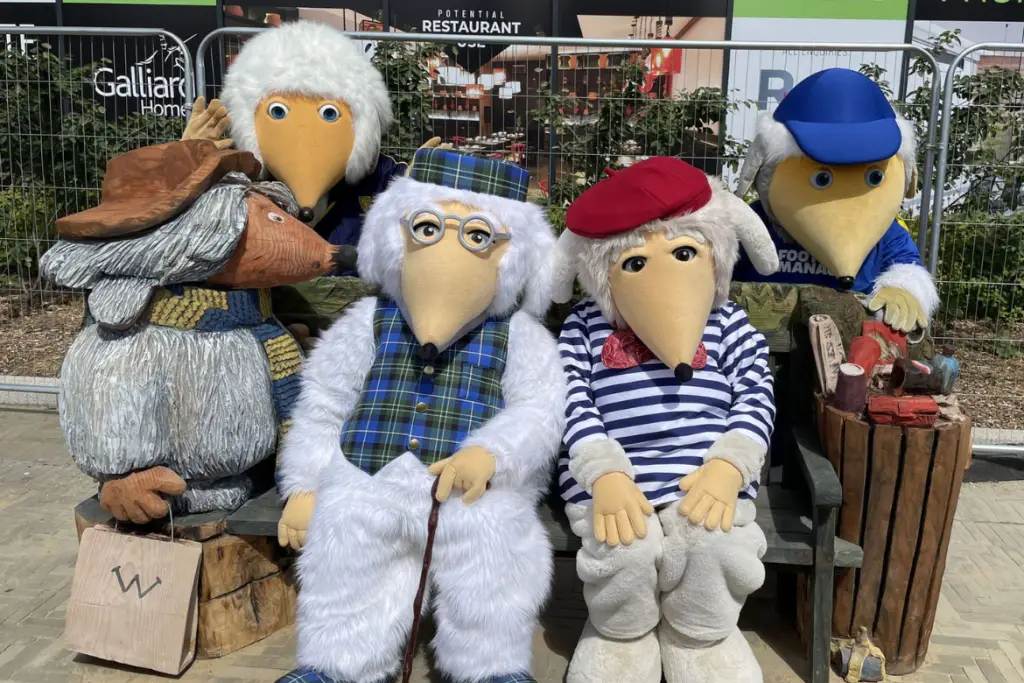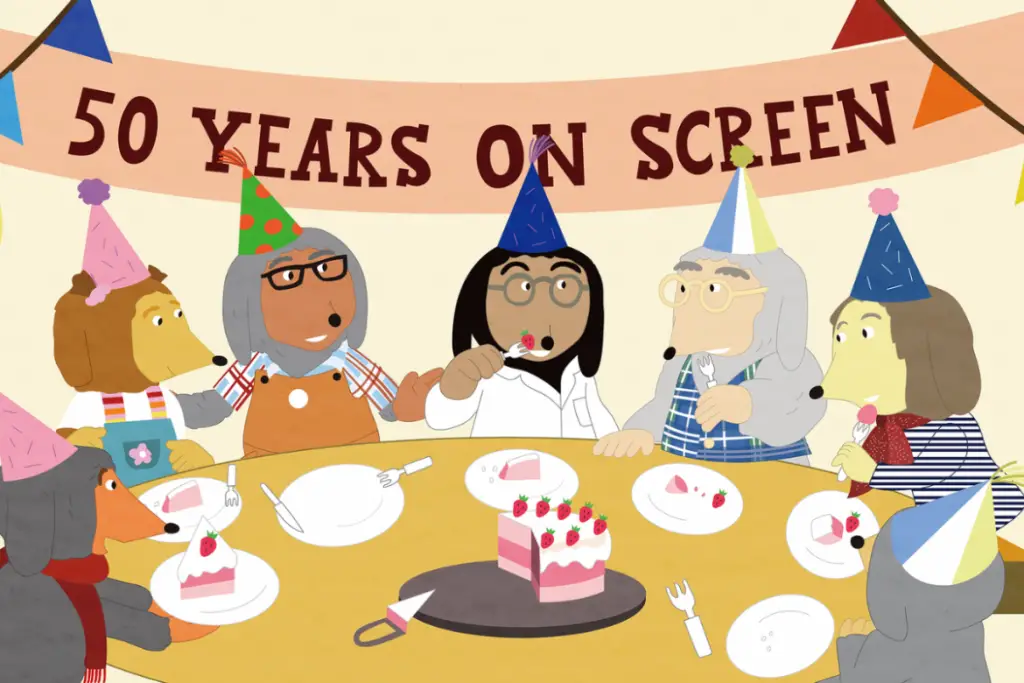The British Isles, known for their rich history, iconic landmarks, and yes, tea, are also the breeding grounds for some of the quirkiest slang terms in the world. From “blimey” to “gobsmacked,” the Brits surely have a way with words. Today, we set our linguistic sights on a particularly whimsical term: “womble.” Buckle up as we unpack the meaning, history, and cultural context of this uniquely British expression.
Introduction:
For many, the word “womble” might evoke memories of furry, long-snouted creatures diligently cleaning up Wimbledon Common. But did you know that “womble” has also made its way into the colorful tapestry of British slang? Let’s explore!
Historical Roots Expounded:
The Wombles, a name that might ring nostalgic bells for many, weren’t always synonymous with slang or urban lingo. Instead, they trace their origins to the literary world. Created by the imaginative Elisabeth Beresford, these distinctive, pointy-nosed, and furry beings first made their debut in a series of children’s novels during the late 1960s. Their charm wasn’t just in their appearance, but also in their environmental ethos. Dedicated to cleaning up Wimbledon Common, the Wombles were, in many ways, ahead of their time, representing recycling and repurposing long before these practices became global movements.

But it wasn’t just their green fingers that caught the public’s attention. The tales of their adventures were filled with lessons on teamwork, creativity, and perseverance, making them instantly beloved by both children and adults. It was this overwhelming adoration that paved the way for their expansion beyond the confines of paper and ink. Soon, the UK witnessed the launch of a dedicated television series that brought these creatures to animated life. Their voices echoed not just on TV but also on radio, proving that their appeal was versatile and broad-reaching.
But the Wombles weren’t content with just the visual and auditory mediums. In an unexpected twist, these fictional recyclers also ventured into the world of music. They released hit singles and, believe it or not, became a musical sensation, even gracing top music charts. This was no small feat for characters that started as figments of a writer’s imagination.
Urban Emergence and Meaning:
Over time, the term “womble” extended beyond its fictional roots. In British slang, to “womble” means to wander around or move without purpose, much like the aimless scurrying of the creatures in the stories. It can also refer to someone who is particularly resourceful, akin to the original Wombles’ penchant for repurposing rubbish.

Generational Evolution & Variations:
With each generation, slang terms evolve, and “womble” is no exception. While older generations may associate the term exclusively with beloved characters, younger Brits might use “womble” more colloquially, detached from its original context. Moreover, in certain urban settings, it can be a playful tease, referring to someone as a bit clueless or out of touch.
Related Slang & Comparative Analysis:
Britain’s love for turning popular culture into slang isn’t unique to “womble.” Terms like “plonker” (originating from the TV show “Only Fools and Horses”) or “Sherlock” (after the famous detective) reflect a cultural tendency to weave media and everyday conversation seamlessly.
Cultural Impact, Media, and Modern References:
The Wombles, aside from their slang legacy, have left an indelible mark on British pop culture. Their environmentally conscious message was ahead of its time, and they continue to be referenced in modern dialogues about sustainability and conservation. It’s not uncommon to hear references in music, television, or literature, bridging generational gaps and promoting eco-friendliness.
Conclusion:
From Wimbledon Common to urban alleys, the journey of “womble” is a testament to the dynamic nature of language. As words transition from pages of children’s books to the bustling streets of London, they tell a story of cultural shifts, generational divides, and the ever-evolving landscape of British slang. So, the next time someone calls you a “womble,” whether they’re commenting on your resourcefulness or your tendency to daydream, take it in stride and remember the rich heritage of this quirky term.
FAQ: Understanding ‘Womble’ in the Realm of British Slang
1. What’s a “Womble” in its original context? Answer: The Wombles are fictional furry creatures from a series of children’s novels written by Elisabeth Beresford in the late 1960s. They are known for collecting and repurposing rubbish in Wimbledon Common.
2. How did “womble” transition from a children’s character to slang? Answer: Over time, the term’s popularity and the Wombles’ characteristic behaviors, like aimless wandering and resourcefulness, influenced the slang definition of “womble” as someone who meanders without purpose or someone exceptionally resourceful.
3. Does “womble” have a negative connotation in slang? Answer: Context is crucial. While “womble” can sometimes refer to someone as clueless or out of touch, it can also be an endearing term denoting resourcefulness.
4. How is “womble” used in a sentence? Answer: Depending on the context, you might hear, “He’s always wombling about, lost in his thoughts,” or “She’s a real womble, always finding creative solutions with what she’s got.”
5. Are the Wombles still relevant in British culture today? Answer: Absolutely! The Wombles, with their environmental message, continue to be referenced in discussions about sustainability and conservation. Their influence is seen across music, television, and literature.
6. How does the slang term “womble” compare to other British slang? Answer: “Womble” is one of several British slang terms derived from popular culture, akin to “plonker” from “Only Fools and Horses” or using “Sherlock” as a term for someone stating the obvious.
7. Do other cultures or countries use “womble” in slang? Answer: While “womble” is deeply rooted in British culture and slang, its usage in other countries is minimal, unless influenced by British media or expatriates.
8. Are there other slang terms related to fictional characters? Answer: Yes, several slang terms originate from fictional characters. For instance, calling someone a “Sherlock” when they state something obvious, drawing from the iconic detective Sherlock Holmes.
9. Is it offensive to call someone a “womble”? Answer: As with many slang terms, context and intent matter. While “womble” can be used endearingly, it can also be teasing. It’s essential to gauge the situation and the relationship with the person you’re addressing.
10. Has the term “womble” evolved over time? Answer: Like most slang, “womble” has seen an evolution. While older generations might tie it closely to the beloved characters, younger Brits might use it more colloquially, sometimes even detached from its original, fictional context.







